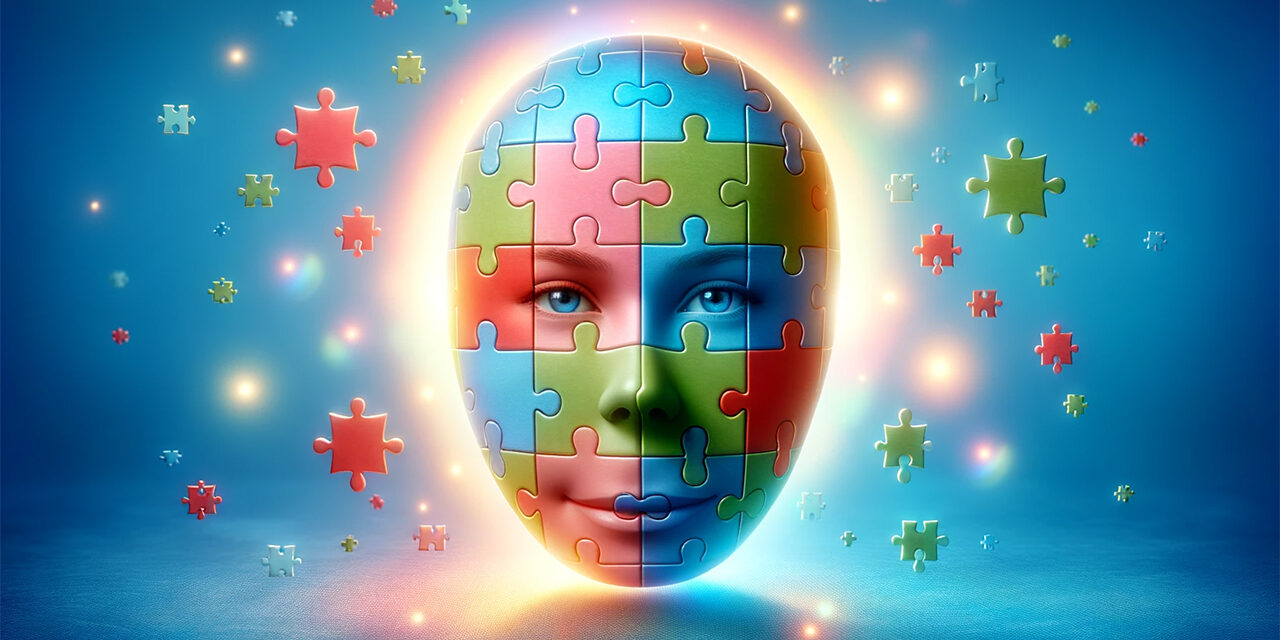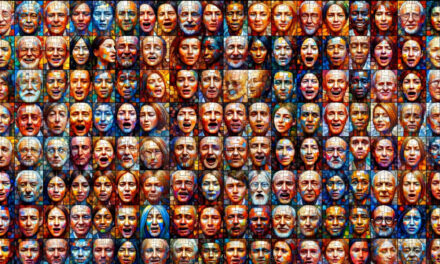Introduction
In today’s fast-paced world, the way we perceive ourselves plays a pivotal role in our actions, decisions, and overall well-being. Enter Neuro-Linguistic Programming, or NLP, a transformative approach that bridges the gap between our minds and communication. For those unfamiliar, NLP is a behavioral methodology that involves understanding the synergy between language, behavior, and thought processes. It’s like having a user manual for your mind!
Imagine a student, hesitant to raise her hand in class, a doctor second-guessing his diagnosis, or a coach unsure about venturing into digital marketing. All these scenarios stem from a lack of self-esteem. But what if there was a way to harness the power of our minds to boost confidence? That’s precisely where NLP techniques for self-esteem come into play.
For coaches, especially those new to the digital landscape, understanding and leveraging NLP can be a game-changer. It’s not just about building self-belief but also about effectively communicating and connecting with clients online. In this blog, we’ll delve deep into the world of NLP, shedding light on its benefits for confidence, strategies for self-belief, and actionable insights tailored for professionals navigating the digital realm.
Stay tuned as we embark on this enlightening journey, exploring the myriad ways NLP can elevate your self-worth and propel you towards personal and professional success.
Understanding Self-Esteem and Its Importance
Self-esteem, at its core, is our internal barometer of self-worth. It’s the lens through which we view ourselves, influencing our thoughts, actions, and interactions. A robust self-esteem acts as an anchor, grounding us in confidence, while a shaky self-esteem can leave us feeling adrift in a sea of self-doubt.
Consider a teacher stepping into a classroom, a therapist meeting a new client, or a businessman pitching an idea. In each scenario, their self-esteem dictates not only their confidence but also the energy they radiate. For instance, a teacher with high self-esteem will command respect and foster a positive learning environment, while one riddled with self-doubt might struggle to engage students.
Similarly, in the digital realm, coaches venturing into online platforms need a strong sense of self-belief. The world of digital marketing is vast and ever-evolving. Whether it’s creating content, engaging with clients, or navigating online tools, a coach’s self-esteem directly impacts their digital presence. A positive self-perception can lead to authentic online interactions, while low self-esteem might result in missed opportunities.
Furthermore, for housewives managing households, self-esteem plays a crucial role in decision-making and interpersonal relationships. It’s the foundation upon which they build their roles as caregivers, nurturers, and managers.
In essence, self-esteem is not just about feeling good about oneself. It’s the driving force behind our potential, dictating our approach to challenges, our resilience, and our capacity to grow. Embracing the benefits of NLP for confidence can be the first step towards nurturing this vital aspect of our psyche.
How Does NLP Boost Self-Worth?
Neuro-Linguistic Programming (NLP) is often likened to a toolkit for the mind. It offers a set of techniques and strategies that delve into our subconscious, helping us reframe negative thought patterns and reinforce positive ones. But how exactly does NLP enhance self-worth?
Firstly, NLP emphasizes the power of language. The words we use, both internally and externally, shape our reality. By becoming aware of our linguistic patterns, we can shift from self-deprecating language to empowering affirmations. For instance, a coach transitioning to digital marketing might initially think, “I can’t grasp this.” With NLP, this thought can be reframed to, “I’m learning and improving every day.”
Secondly, NLP introduces visualization techniques. By mentally rehearsing success, we can cultivate a mindset of achievement. Imagine a therapist visualizing a successful session with a client or a student picturing a triumphant presentation. These mental rehearsals boost confidence and self-belief.
Lastly, NLP strategies for self-belief focus on anchoring positive experiences. By recalling moments of success and associating them with specific triggers, we can instantly evoke feelings of competence and worthiness.
In essence, NLP provides a roadmap to navigate the intricacies of our minds, allowing us to unearth and amplify our innate value, thereby bolstering our sense of self-worth.
Benefits of NLP for Confidence
Confidence is more than just a feeling; it’s a catalyst that propels us towards our goals, enabling us to tackle challenges head-on. With NLP, individuals can tap into a reservoir of self-assuredness, reaping numerous benefits in both personal and professional spheres. Let’s delve into how NLP fortifies confidence:
Enhanced Communication: NLP techniques fine-tune our verbal and non-verbal communication. Whether it’s a coach conveying strategies to clients online or a businessman negotiating a deal, effective communication bolstered by NLP can instill confidence in both the speaker and the listener.
Overcoming Limiting Beliefs: We all harbor certain beliefs that hinder our progress. NLP exercises for positive self-perception help individuals identify and challenge these limiting beliefs, replacing them with empowering thoughts.
Building Resilience: Life is replete with ups and downs. NLP tools for personal growth equip individuals with the resilience to bounce back from setbacks, fostering a steadfast confidence that remains unshaken by external circumstances.
Goal Setting and Achievement: NLP sharpens focus and clarity, aiding in setting realistic goals. With increased confidence, individuals are more driven to pursue and achieve these goals, be it in digital marketing endeavors or personal aspirations.
In a nutshell, NLP serves as a beacon, illuminating the path to heightened confidence, enabling individuals to shine in their respective domains with unwavering self-assuredness.
NLP Techniques for Self-Esteem
Neuro-Linguistic Programming offers a treasure trove of techniques designed to elevate self-esteem. These methods, rooted in understanding the intricate dance between our minds and language, can be transformative when practiced consistently. Here are some pivotal NLP techniques tailored to bolster self-esteem:
Swish Pattern: This technique involves replacing a negative image or thought with a positive one. Imagine a student anxious about an upcoming exam. Using the Swish Pattern, they can replace this anxiety with a visualization of confidently answering questions, thereby shifting their mindset.
Anchoring: Anchoring harnesses the power of association. Think of a time when you felt incredibly confident. By associating this memory with a physical touch, like tapping your fingers, you can ‘anchor’ this feeling and evoke it whenever needed. This can be especially beneficial for professionals, like therapists or coaches, before a significant meeting or session.
Reframing: At the heart of NLP lies the ability to reframe situations. Instead of viewing challenges as insurmountable obstacles, individuals learn to see them as opportunities for growth. For instance, a businessman facing a setback can reframe it as a learning experience, bolstering his self-esteem.
Positive Affirmations: Daily affirmations, when crafted using NLP principles, can be potent self-esteem boosters. Phrases like “I am capable” or “I embrace challenges” can reshape one’s self-perception over time.
Mirroring and Rapport Building: By subtly mirroring the body language and speech patterns of others, individuals can build rapport and feel more confident in social situations.
Incorporating these NLP exercises for positive self-perception into daily routines can lead to profound shifts in self-esteem. As with any skill, consistency is key, and the rewards, in terms of enhanced self-worth, are well worth the effort.
NLP Strategies for Self-Belief and Overcoming Self-Doubt with NLP
Self-belief is the bedrock of success, while self-doubt, if left unchecked, can be its greatest impediment. NLP offers a suite of strategies tailored to fortify self-belief and dispel the clouds of doubt. Let’s explore some of these transformative strategies:
Future Pacing: This involves visualizing a future where you’ve achieved your goals. For a coach delving into digital marketing, it could mean envisioning a thriving online presence. This mental rehearsal instills a deep-seated belief in one’s capabilities.
Meta Model Questions: These are probing questions that challenge limiting beliefs. For instance, if someone thinks, “I’m not good at public speaking,” a meta model question could be, “What specifically makes you believe that?” By dissecting such beliefs, individuals can confront and overcome self-doubt.
Belief Change Cycle: This NLP strategy revolves around replacing limiting beliefs with empowering ones. Recognizing the source of a negative belief, challenging its validity, and then substituting it with a positive belief can lead to profound shifts in self-perception.
Dissociation Technique: Confronting negative experiences can be daunting. By mentally ‘stepping out’ and viewing them as an objective observer, individuals can detach from the emotional baggage, gaining clarity and boosting self-belief.
Circle of Excellence: This technique involves visualizing a circle filled with positive energy and confidence. Stepping into this circle whenever faced with challenges can be a powerful antidote to self-doubt.
Harnessing these NLP strategies can be a beacon for those navigating the murky waters of self-doubt. With practice and persistence, the shores of unwavering self-belief are well within reach, paving the way for personal and professional triumphs.
Neuro-Linguistic Programming and Self-Image
Our self-image is the mental picture we hold of ourselves, influencing every facet of our lives, from our relationships to our career aspirations. Neuro-Linguistic Programming (NLP) offers a unique lens to view and reshape this image, ensuring it aligns with our true potential.
Perceptual Positions: NLP teaches us to view ourselves from three distinct positions: first-person (self), second-person (another’s perspective), and third-person (an objective observer). By shifting between these viewpoints, we gain a holistic understanding of our self-image. A therapist, for instance, can better empathize with clients, while a student can objectively assess their strengths and areas for improvement.
Submodalities Shift: Our self-image is often tied to memories and past experiences. NLP’s submodalities technique allows us to tweak the sensory details of these memories, such as brightness or volume. By altering these details, we can change the emotional impact of the memory, leading to a more positive self-image.
Identity Integration: At times, we grapple with conflicting self-images. A coach might see themselves as a mentor but struggle with the nuances of digital marketing. NLP aids in integrating these disparate identities, fostering a cohesive and empowering self-view.
In essence, NLP is a powerful tool in the quest for a positive self-image. By harnessing its techniques, we can sculpt a self-view that’s both authentic and aspirational, paving the way for personal growth and fulfillment.
NLP Exercises for Positive Self-Perception
A positive self-perception is akin to a compass, guiding us towards our true north. With NLP, we can fine-tune this compass, ensuring it points towards self-assuredness and clarity. Here are some impactful NLP exercises tailored to cultivate a radiant self-perception:
Visual-Kinesthetic Dissociation: Often termed the ‘Fast Phobia Cure,’ this exercise involves recalling a negative experience and viewing it as a detached observer, rather than a participant. By distancing ourselves, we can process and release negative emotions, fostering a healthier self-view.
Timeline Therapy: Visualize your life as a timeline and identify points of distress or low self-worth. By addressing and reframing these moments, we can heal past wounds and cultivate a more positive perception of our journey.
Positive Anchoring: Recall a moment of immense pride or joy. Immerse yourself in the sensory details. Now, create a physical ‘anchor’ (like pinching your thumb and forefinger). Whenever you need a boost, activate this anchor to evoke feelings of positivity.
Collapsing Anchors: Identify a negative emotion and its trigger. Create an anchor for this emotion. Next, recall a powerful positive emotion and anchor it. Activate both simultaneously to ‘collapse’ the negative anchor, replacing it with positivity.
Swish Technique (Advanced): Envision a negative self-image and a desired positive one. Rapidly ‘swish’ the negative into the positive, repeating until the positive image dominates your perception.
Incorporating these NLP exercises for positive self-perception into daily routines can lead to profound shifts in self-view. As with any transformative journey, patience and persistence are key. Over time, these exercises can serve as stepping stones to a vibrant and empowered sense of self.
The Role of NLP in Self-Acceptance and Mental Well-Being
Self-acceptance is the cornerstone of mental well-being. It’s the gentle embrace of our strengths and vulnerabilities, allowing us to navigate life with grace and resilience. Neuro-Linguistic Programming (NLP) plays a pivotal role in fostering this acceptance, offering tools and techniques that nurture the mind and soul.
Core Belief Elicitation: At the heart of our self-perception lie core beliefs. NLP exercises help unearth these beliefs, allowing us to confront and reshape any that might be limiting our self-acceptance.
Parts Integration: We all have conflicting ‘parts’ within us—a part that seeks adventure and another that craves security. NLP aids in harmonizing these parts, leading to a more integrated and accepting self-view.
Mindfulness and Presence: NLP emphasizes the power of the present moment. By grounding ourselves in the ‘now,’ we can release past regrets and future anxieties, fostering a deep sense of self-acceptance.
Reframing Negative Self-Talk: Our inner critic can be relentless. NLP techniques teach us to reframe this self-talk, transforming criticism into constructive feedback.
In essence, NLP is a beacon for those seeking self-acceptance and mental tranquility. By harnessing its principles, we can cultivate a mindset that not only embraces the entirety of our being but also prioritizes our mental well-being, leading to a life of fulfillment and peace.
NLP Tools for Personal Growth
Personal growth is an ever-evolving journey, filled with challenges, triumphs, and profound learnings. Neuro-Linguistic Programming (NLP) offers a suite of tools designed to catalyze this journey, ensuring we reach our highest potential. Let’s explore some of these transformative NLP tools tailored for personal development:
Logical Levels of Change: This tool helps individuals understand the different levels at which change occurs, from environment and behavior to values and identity. By addressing change at the right level, one can ensure lasting personal growth.
Meta Programs: These are deep-seated thinking patterns that influence our behavior. By identifying and understanding our dominant meta programs, we can tailor our strategies for growth, be it in communication, decision-making, or motivation.
Neurological Alignment: Often, our conscious desires conflict with our subconscious beliefs. This NLP tool ensures alignment between the two, paving the way for harmonious growth.
Milton Model: Named after the famed therapist Milton Erickson, this tool uses vague and ambiguous language to communicate with the subconscious mind, facilitating positive change and growth.
Modeling: One of the foundational principles of NLP, modeling involves emulating the behaviors, beliefs, and strategies of successful individuals. By ‘modeling’ success, we can fast-track our personal growth journey.
Incorporating these NLP tools into our daily lives can lead to profound shifts in perspective, behavior, and overall well-being. As with any journey, the path to personal growth requires dedication and persistence. With NLP as our guide, we are well-equipped to navigate the intricacies of this journey, embracing each challenge as an opportunity for growth.
Conclusion
In the vast tapestry of human experience, our perception of self stands as a central thread, influencing our choices, relationships, and aspirations. Neuro-Linguistic Programming (NLP) offers a profound lens through which we can view and reshape this perception, ensuring it aligns with our true essence.
From students stepping into the world of academia to professionals navigating the complexities of their fields, from housewives managing the heartbeats of their homes to coaches venturing into the digital realm, NLP serves as a guiding star. Its techniques, strategies, and tools, rooted in the intricate dance between language and the mind, offer a roadmap to heightened self-esteem, unwavering self-belief, and holistic well-being.
As we’ve journeyed through the myriad ways NLP can enhance self-worth, boost confidence, and foster personal growth, one truth stands clear: the power to transform lies within us. NLP merely offers the tools to unlock this potential.
For those seeking to elevate their self-image, overcome self-doubt, and embrace the beauty of self-acceptance, NLP is a beacon. It’s a testament to the boundless capabilities of the human mind and the transformative power of self-awareness.
In the words of Richard Bandler, one of the co-founders of NLP, “The greatest personal limitation is to be found not in the things you want to do and can’t, but in the things you’ve never considered doing.” With NLP by our side, the horizon of possibilities expands, inviting us to explore, grow, and thrive.










